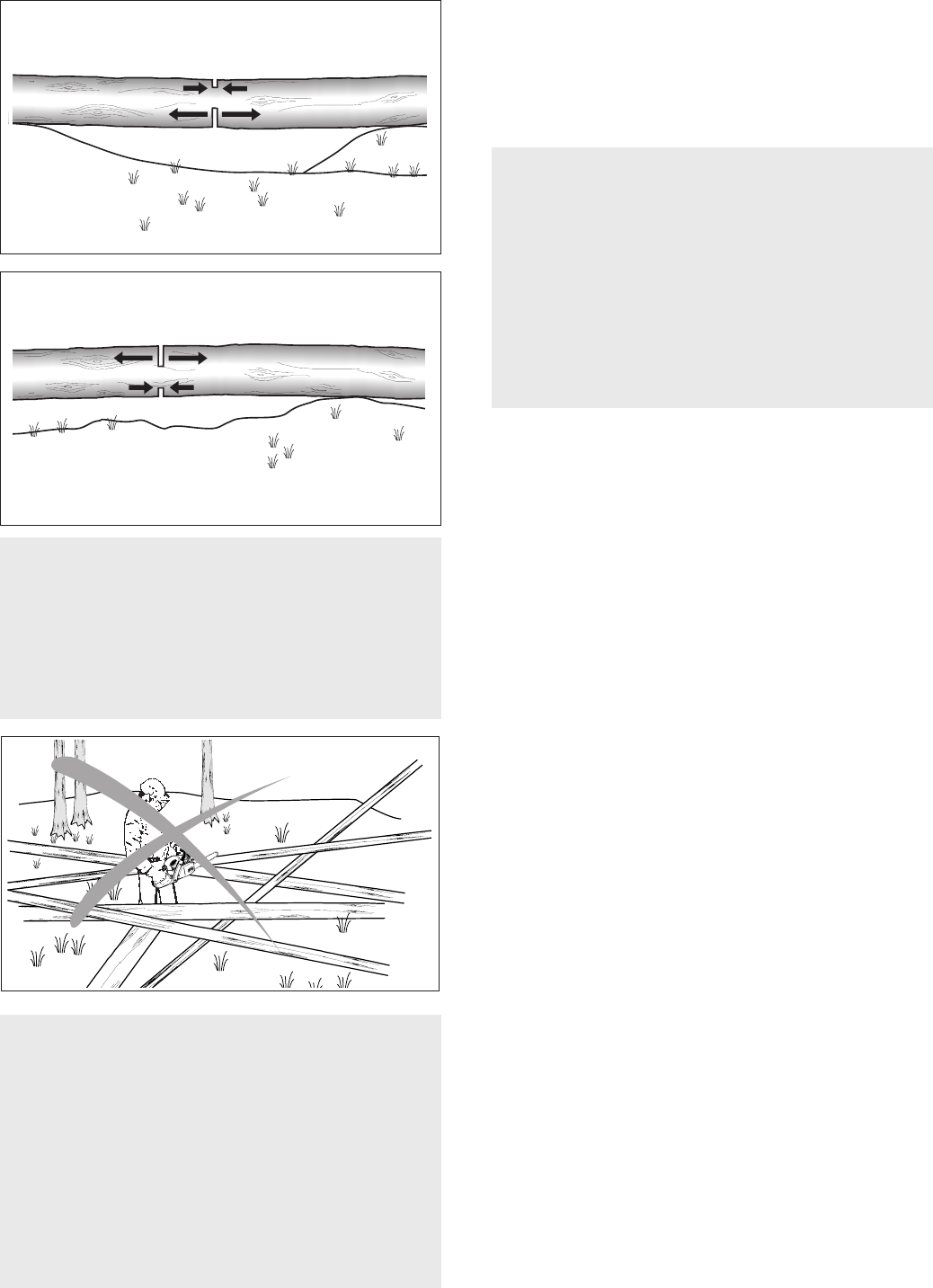
16
1. Relieving cut
2. Cross cut
Tension side
Pressure side
1. Relieving cut
2. Cross cut
Tension side
Pressure side
33
34
35
Maintenance and Repair
Never operate a chain saw that is damaged, improperly
adjusted or not completely or securely assembled.
Follow the maintenance and repair instructions in the
appropriate section of this manual.
WARNING !
Always stop the engine and make sure that the chain
is stopped before commencing any maintenance
or repair work or cleaning the saw. Allow the chain
saw to cool off before doing any maintenance work
(burn hazard)! Chain saws with catalytic converter
take longer to cool down!
Do not attempt any maintenance or repair work not
described in this manual. Have such work performed
by your MAKITA service shop only.
Maintaining and storing the saw
Keep the chain, bar and sprocket clean and lubricated;
replace worn sprockets or chains.
Keep the chain sharp. You can spot a dull chain when
easy-to-cut wood becomes hard to cut and burn marks
appear on the wood.
Keep the chain at proper tension. Tighten all nuts, bolts
and screws except the carburetor adjustment screws
after each use.
Keep spark plug and wire connection tight and clean.
Store saws in a high or locked place, away from
children.
WARNING!
5. Logs under strain require special attention to
prevent the saw from pinching. The rst cut is
made on the compression side to relieve the
stress on the log (see g. 33, 34). The bucking
cut is then made as shown. If the saw pinches,
stop the engine and remove it from the log.
WARNING!
6. Only properly trained professionals should work
in an area where the logs, limbs and roots are
tangled (i. e. a blowdown area, g. 35). Working
in blowdown areas is extremely hazardous.
WARNING!
7. Drag the logs into a clear area before cutting.
Pull out exposed and cleared logs rst.


















